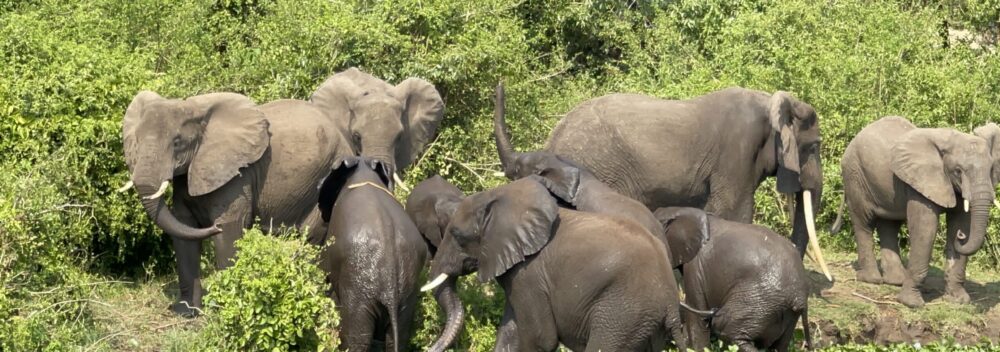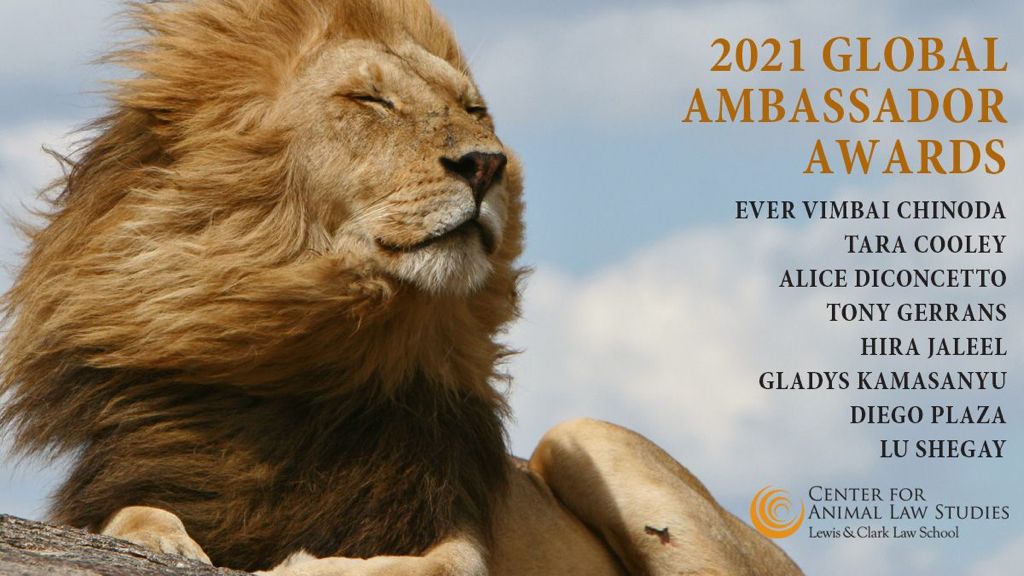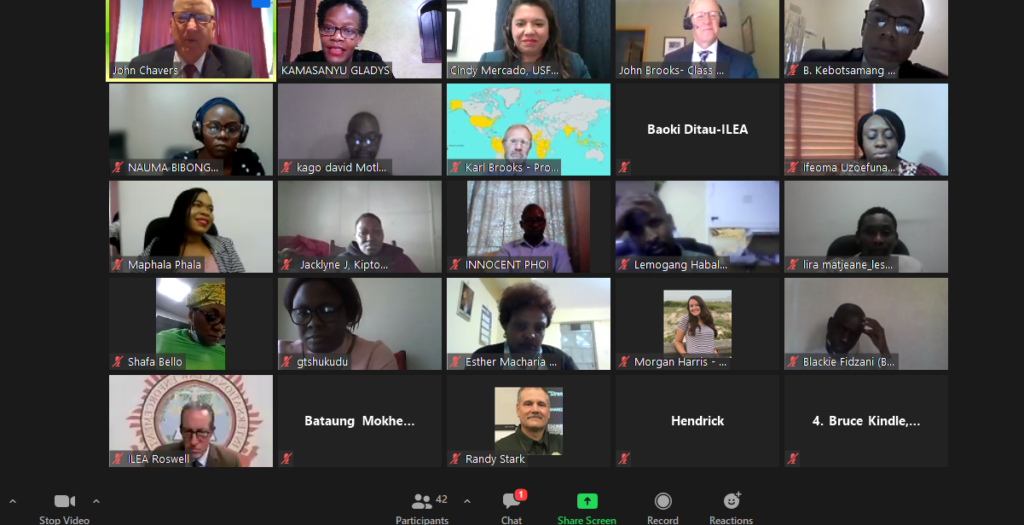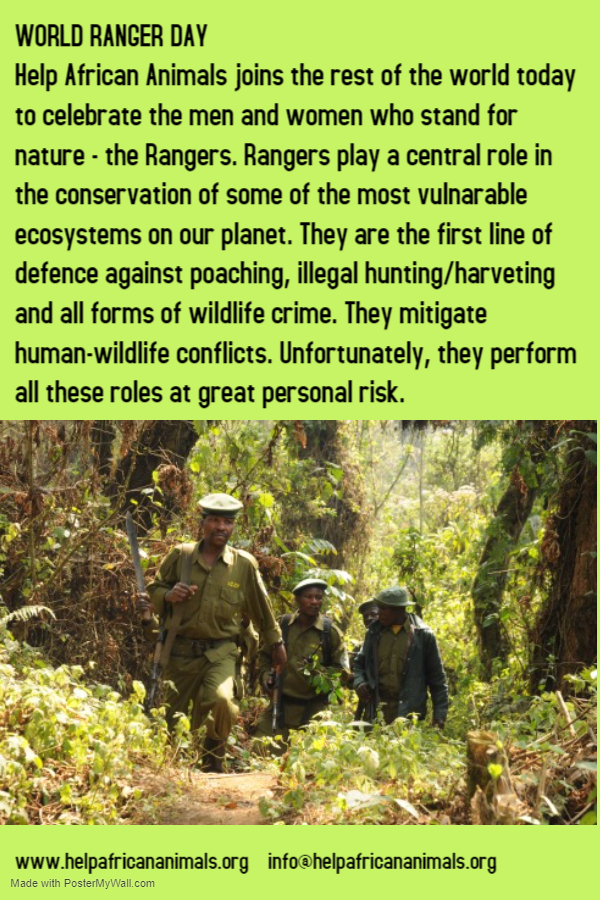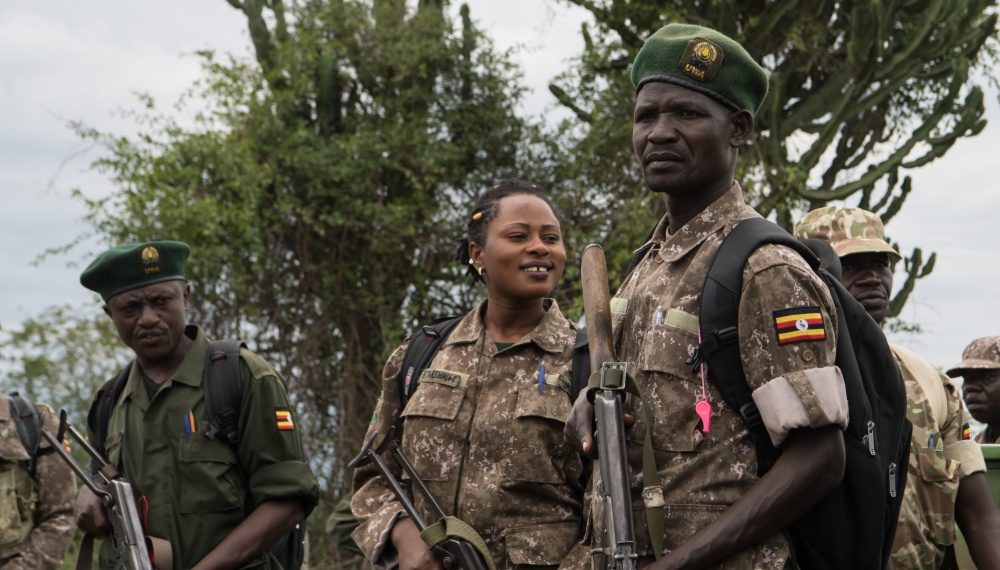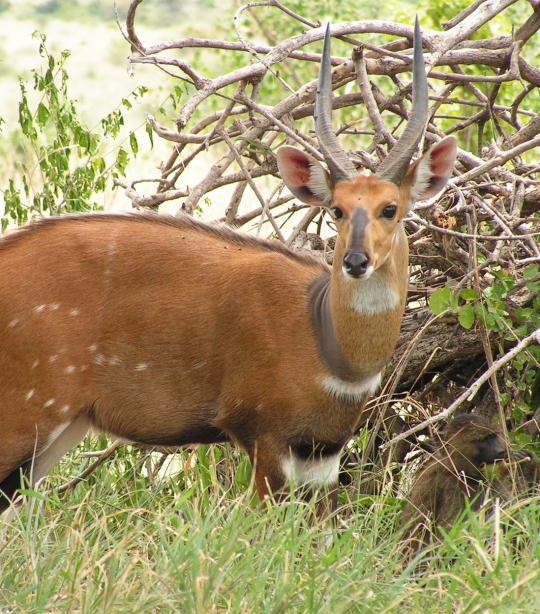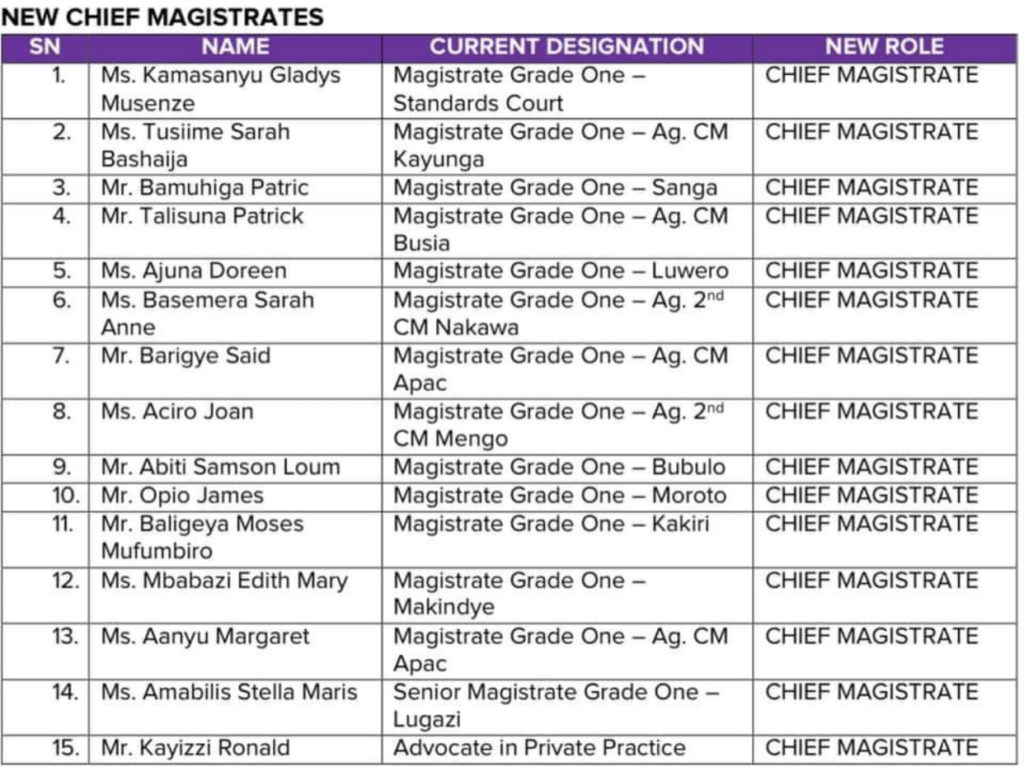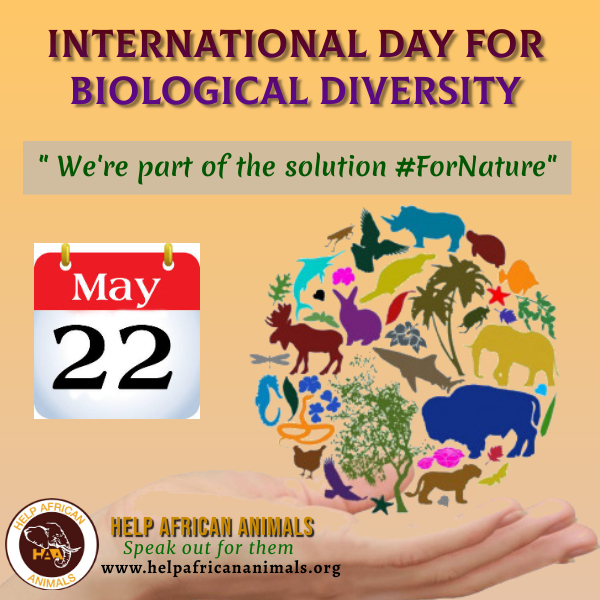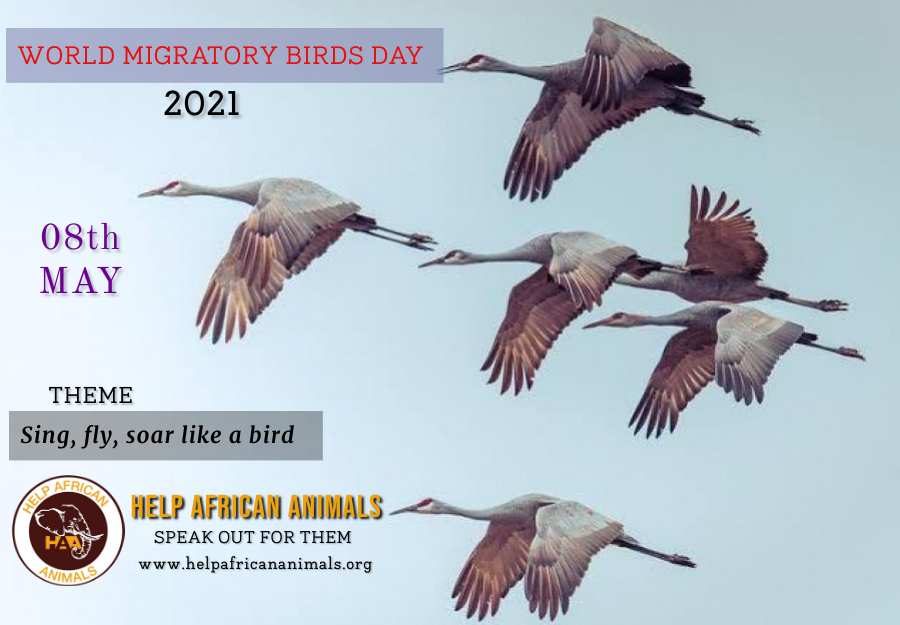As we join the rest of the world to celebrate the world’s remaining gorillas, let’s take action to conserve them today.
Category Archives: Uncategorized
2021 Global Ambassador Awards
Our own Gladys Kamasanyu has been nominated as one of the 2021 Global Ambassadors by Center for Animal Law Studies. Using the grant, Gladys and Help African Animals will be compiling, designing, producing, and distributing a compendium of all animal protection laws in Uganda to make them available to stakeholders in the fight against wildlife crime and other crimes against animals, advocates, students and community members. By spreading knowledge about animal protection laws to other Ugandans, we will be contributing to increased awareness and build more capacity on animal protection which will save lives of animals.
We can dismantle trade in illicit wildlife products if we keep connected throughout our nations
Our own Gladys Kamasanyu was last week honored to speak about her successes at a virtual Executive Forum on Wildlife Trafficking organized by the International Law Enforcement Academy (ILEA) Roswell – New Mexico and Gaborone – Botswana in partnership with the United States Fish and Wildlife Service (USFWS) for African Delegates. Gladys is an alumni of ILEA Roswell where she attended a high level training on Transnational Wildlife Trafficking in June 2019. She was the Head of the Uganda delegation that had delegates from the Uganda Judiciary, Uganda Wildlife Authority, Uganda Revenue Authority (Customs Department) and Office of the Director of Public Prosecutions. The training was attended by delegates from Uganda, Kenya, Namibia, Thailand, Malaysia and Indonesia. This gave Gladys an opportunity to be part of an international network of persons determined to dismantle trade in illicit wildlife products through well planned and coordinated efforts. Since then her efforts in fighting wildlife crime have been immense.
World Lion Day
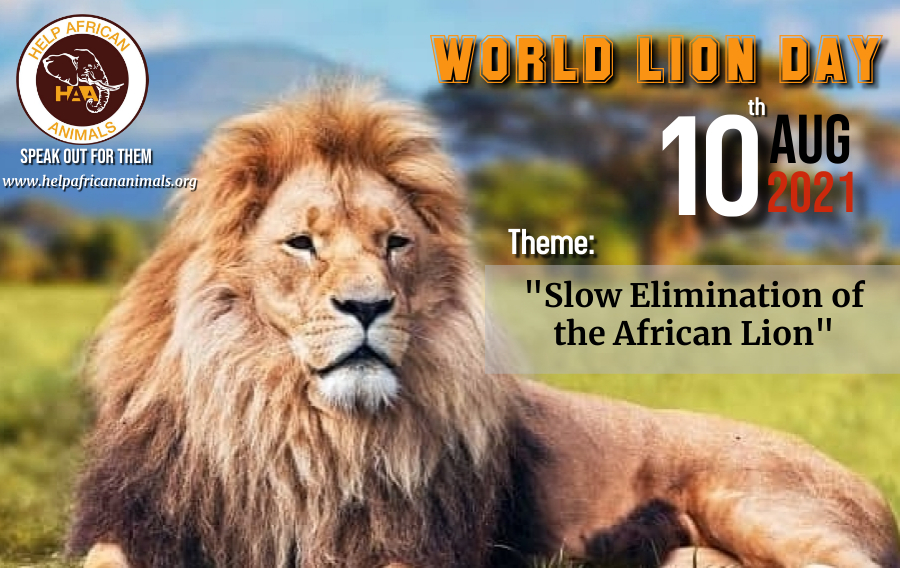
The commemoration of the World Lion Day this year comes just a few months after six lions were poisoned at Queen Elizabeth National Park in Uganda and suspects are undergoing trial. On this very important day we all should reflect on how we can keep lions safe in order to increase thier numbers.
Lions are listed as vulnerable on the red list of threatened species compiled by the International Union for Conservation of Nature. Illegal wildlife trade, poachers, and trophy hunters are contributing to the disappearance of lions on the African continent. Habitat loss, poor regulation of legal trade, and climate change are all drivers of the declining numbers of lions.
World Ranger Day
July 31 World Ranger Day
Tomorrow July 31, 2021 will be World Ranger Day. We join the rest of the world to recognize the super men and women out there that are referred to as park or forest rangers who protect our wildlife, help and work with communities to solve human-wildlife conflicts, and protect us when we go to the parks. We appreciate all the hard work they do to make the world a better place for humans and wildlife.
Two sentenced to 12 years for killing a bush buck
The Chief Magistrate at Kyenjojo Chief Magistrates Court in Uganda on June 30th, 2021 sentenced two men to 4 years imprisonment for illegal entry into a protected area and 12 years imprisonment for killing a protected specie. The two were on June 28th, 2021 arrested inside Katonga Wildlife Reserve. They were also found in possession of a dead bush buck, 2 pangas, 2 sharp spears and 8 wire snares.
The two men pleaded guilty and were each sentenced to a fine of 100 currency points (2,000,000/=) or an imprisonment term of 4 years for illegal entry into a protected area and 10,000 currency points (200,000,000/=) or to an imprisonment term of 12 years for killing a protected specie.
The Uganda Wildlife Act 2019, provides for a penalty of a fine not exceeding 10,000 currency points (200,000,000/=) or life imprisonment or to both the fine and life imprisonment for killing a protected specie like a bush buck. The sentence is an indication that courts have started appreciating the need to conserve wildlife which is a huge victory for wildlife.
Victory for Animals
International Day for Biological Diversity
Biodiversity is declining at an unprecedented and alarming rate. Due to human pressure on natural resources, the resources are depleted at a rate more than nature can replenish them. We have already suffered the consequences. COVID19 pandemic is just one of problems arising from abuse of nature. We need to protect nature and restore the ecosystems in order to bring about balance in our relationship with nature. We have a choice, either to be part of the problem or to be part of the solution. On this international day for biological diversity, let us choose to be part of the solution. Let us protect nature and stop human loss.
World Migratory Birds Day
Today Help African Animals joins the rest of the world to commemorate World Migratory Birds Day. This year’s theme is sing, fly, soar like a bird. Much as most of us humans have been locked down by the COVID19 pandemic, migratory birds have not. Migratory birds know no border. This is therefore a call to all of us, wherever we are to join hands and protect migratory birds.
